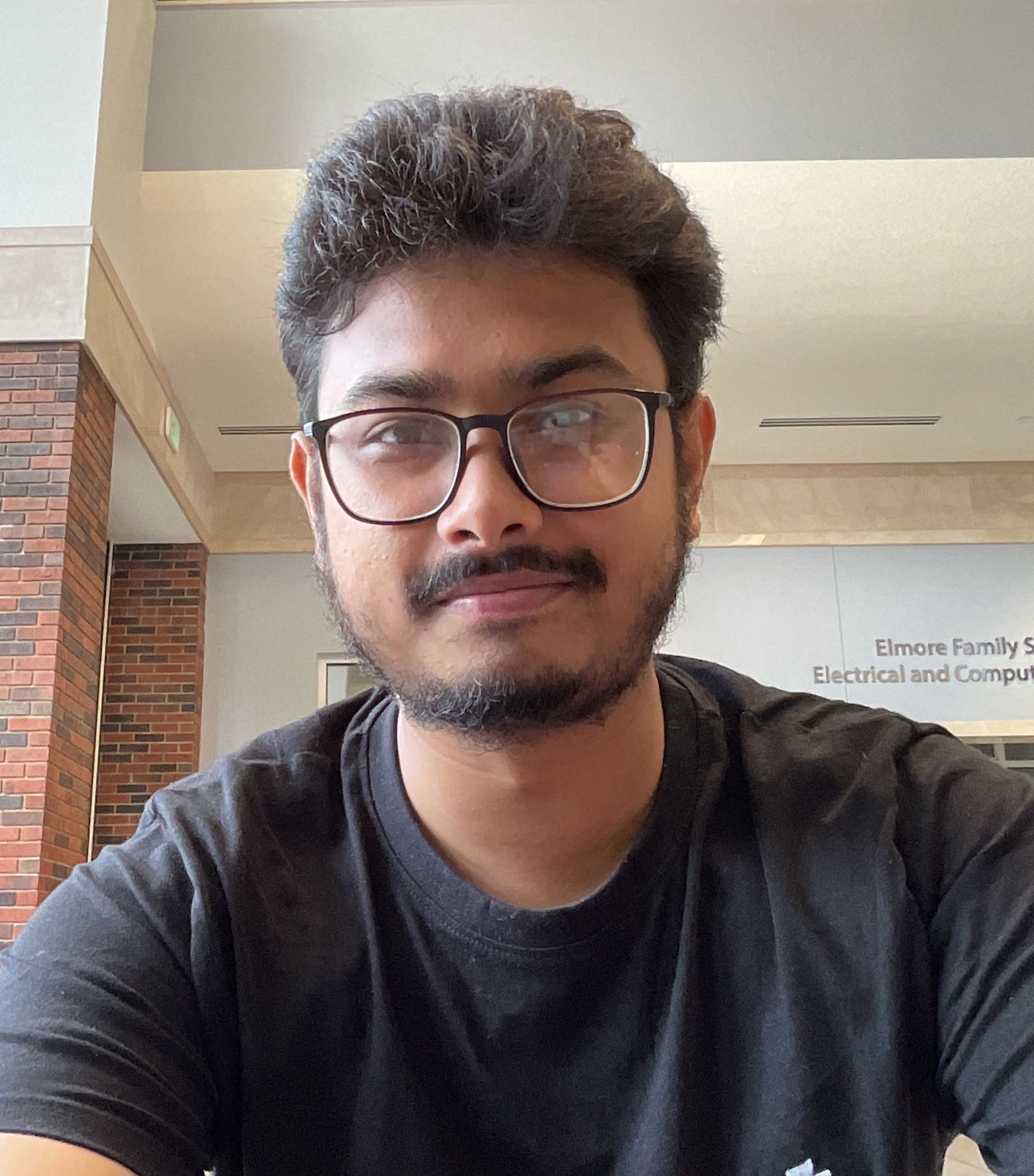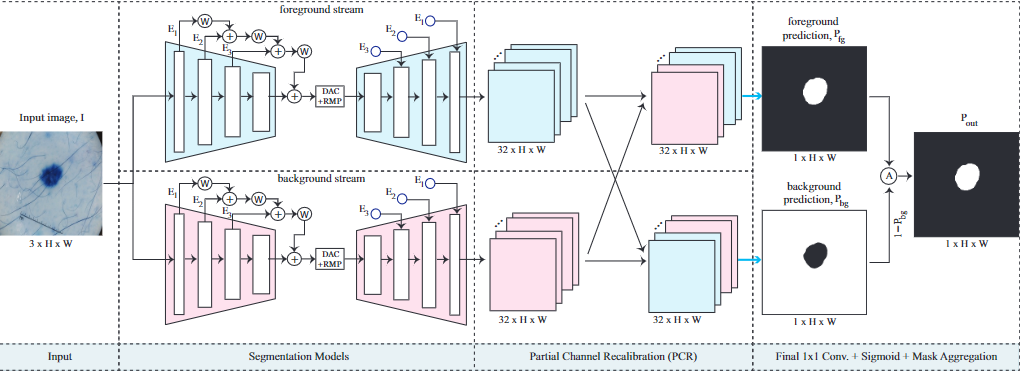|
I am a second year PhD student at Purdue ECE, advised by Prof. Joseph Makin. My research interests are broadly in the areas of signal processing, machine learning, and generative modeling. I am currently working on developing brain-to-speech algorithms that can directly decode audible speech from intercranial neural recordings. Prior to joining Purdue, I completed my undergraduate and master's degrees from the department of Electrical and Electronic Engineering (EEE), BUET in 2021 and 2023, respectively. I have also taught at the department of EEE, BUET as a lecturer for three years. Outside of work, I like to travel, read books, and play chess in my free time. Email / CV / Google Scholar / Github / LinkedIn |

|
|
|
Representative papers are highlighted. |

|
Shahed Ahmed, Md.Kamrul Hasan Computer Vision and Image Understanding, 2024 We propose a dual-stream segmentation model, Twin-SegNet that performs both foreground and background tissue segmentation, and unifies them through a dynamic partial channel recalibration technique. |
|
|
Shahed Ahmed, Md.Kamrul Hasan Biomedical Signal Processing and Control, 2023 We propose COMA-Net for achieving generalized medical image segmentation. We show that increasing the strength of foreground tissue w.r.t. the background at the feature space is beneficial to overall segmentation performance. |
|
|
Jahin Alam, Mir Sayeed Mohammad, Md Adnan Faisal Hossain, Ishtiaque Ahmed Showmik, Munshi Sanowar Raihan, Shahed Ahmed, Talha Ibn Mahmud Computers in Biology and Medicine, 2022 A novel framework is proposed that unifies classification and segmentation strategies for efficient skin lesion segmentation. |
|
|
Shahed Ahmed, Uday Kamal, Md.Kamrul Hasan Ultrasonics, 2021 The proposed DSWE-Net has shown great promise in producing Shear Wave Elastography (SWE) images from scatterer motion data induced by a single Acoustic Radiation Force (ARF) push. |
Website adapted from here.